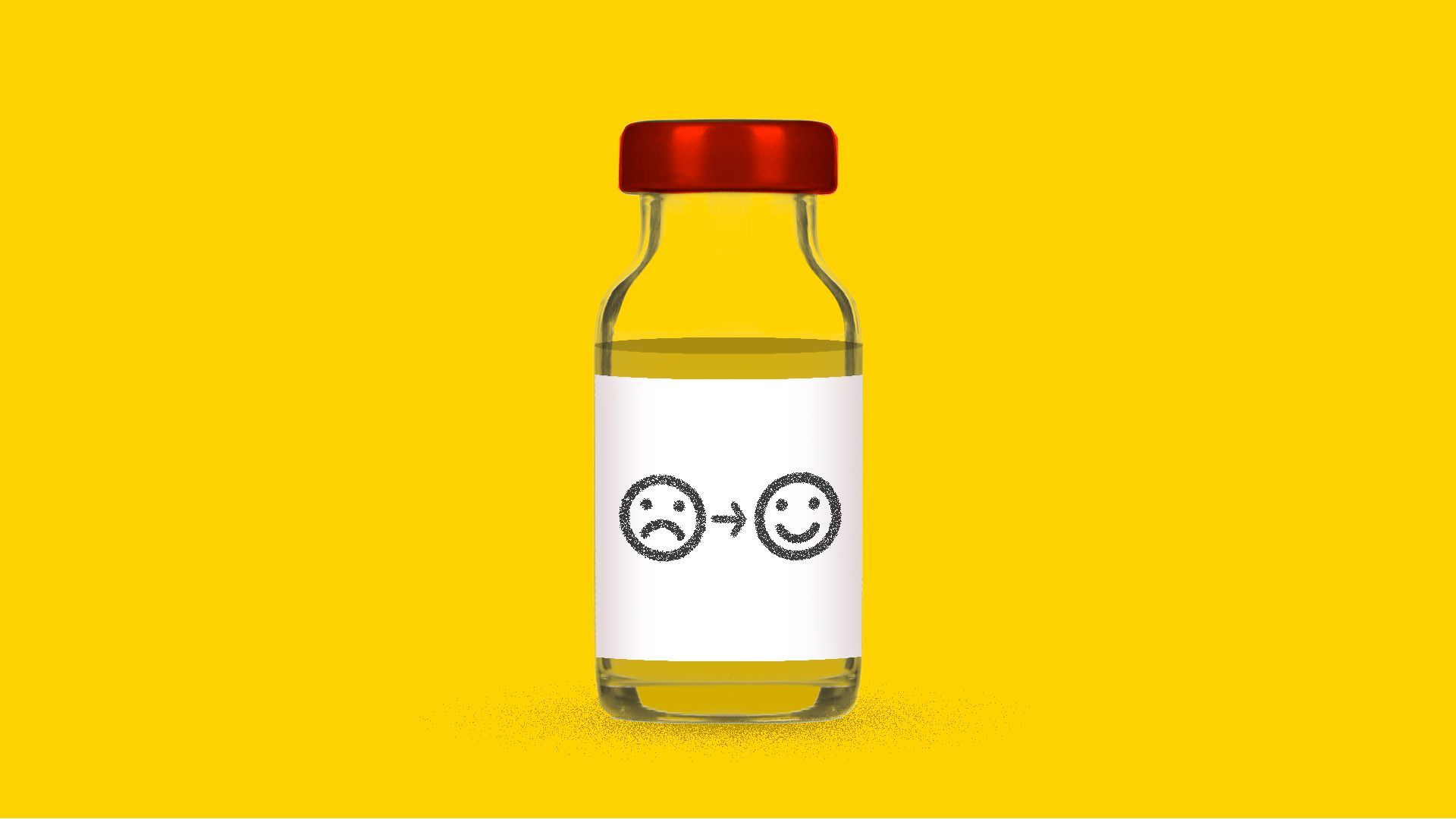South Florida startup treating depression with ketamine to expand
Add Axios as your preferred source to
see more of our stories on Google.

Illustration: Lazaro Gamio/Axios
A North Miami-based telemedicine company at the forefront of treating depression with ketamine is expanding beyond Florida.
Driving the news: Toronto-based medical research firm, Braxia Scientific Corp., recently acquired KetaMD for about $6 million with plans to roll out its at-home ketamine treatments to several states, including California, New York and Texas, this year, TechCrunch reports.
The big picture: Ketamine, MDMA, LSD and psilocybin — the active ingredient in magic mushrooms — have shown promise in treating mental health disorders, including treatment-resistant depression, Axios' Alison Snyder and Bryan Walsh report.
- Over the past few years, as stigma around the drugs has faded, more funding has poured into researching psychedelic therapies and the market for them is expected to grow by billions in the coming years.
Yes, but: There are challenges to administering ketamine treatment, which requires monitoring.
- Telemedicine, like KetaMD's digital platform and Miami startup NUE Life Health, has been billed as a potential solution.
How it works: KetaMD screens patients over its digital platform to determine whether they qualify for the ketamine treatment. If approved, a KetaMD medical provider will talk through the option with the patient, the South Florida Business Journal reports.
- Once dosage is determined, the company mails ketamine troches — lozenges — for patients to take orally at home.
- Patients must have a friend with them as they take the drug, and a nurse will monitor the treatment via videoconferencing.
- A session lasts about an hour. KetaMD's website says, "It is often described as a journey through one's own mind, where you may encounter beautiful visuals and can access difficult areas of your life from a new angle."
Between the lines: Ketamine is legal for medical use in the U.S. It was approved in 1970 by the Food and Drug Administration for human use as an anesthetic.
- In 2019, the FDA approved a nasal spray, esketamine, which is made from ketamine, for adults with treatment-resistant depression.
- In the past few years, clinics have opened up around the country offering ketamine via intravenous treatments.
- A recent Columbia University study suggests ketamine can help people with suicidal thoughts within 24 hours.
Of note: The ketamine industry is largely unregulated, and the drug is still being studied, with dozens of clinical trials underway.
- Some patients could have "bad trips" or mixed feelings with ketamine.
- Ketamine is still being studied, with dozens of clinical trials underway.
What they're saying: KetaMD co-founder and CEO Warren Gumpel told Axios he was introduced to the ketamine industry as a patient seeking intravenous treatment, which he said changed his life.
- However, "It was expensive. It was time consuming. The opportunity cost of going into the clinic made it very difficult for most people to actually get the treatment," he said.
- And that's in cities, Gumpel added; many rural counties don't even have a psychiatrist.
During the pandemic, when in-person clinic treatments were halted, Gumpel thought: "Why don't we make this into Amazon instead of thinking about this as building Kmarts?"
- Moving to telemedicine can reduce costs significantly, compared to IV treatments, he said.
Details: An initial consultation with KetaMD costs about $249. A standard protocol consists of six treatments over approximately three weeks and costs about $1,200.
- The cost of in-person ketamine infusions can range from $400 to $2,000 per session, according to the Delray Center for Healing in South Florida.
- Insurance does not cover either.
What to watch: Wonderland, a major psychedelic medicine conference, runs Nov. 3-5.
